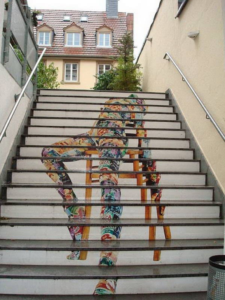
Want to Be a Good Writer? It Isn’t Easy, but This Is the First Step
“Every discourse, even a poetic or oracular sentence, carries with it a system of rules for producing analogous things and thus an outline of methodology.”
– Jacques Derrida
When writers discuss their craft, the conversation is often about larger issues – like structuring a plot or developing characters… connecting thoughts and weaving themes… creating tension and anticipation… and the architecture of persuasion.
But we seldom talk about the first and foremost challenge: how to write a good sentence.
Hemingway famously said, “All you have to do is write one true sentence. Write the truest sentence that you know.”
I’ve never heard a good writer dispute this.
In Several Short Sentences About Writing, Verlyn Klinkenborg – one of my favorite writers about writing – says there is a reason the sentence must come first:
“Your job as a writer is making sentences. Most of your time will be spent making sentences in your head. In your head. Did no one ever tell you this? That is the writer’s life.”
Most of the sentences that beginning writers write, he warns, will not be worth keeping. “You will have to delete them. And most of the rest of your sentences will have promise, but they will need fixing. The hard part now is deciding which to kill and which to fix and how to fix them.”
This is a skill. A skill that the writer can never completely master.
He continues:
“A writer’s real work is the endless winnowing of sentences. The relentless exploration of possibilities, the effort, over and over again, to see in what you started out to say the possibility of saying something you didn’t know you could.”
If that sounds like hard work, it is. But if you learn to write a single good sentence, you can writer another, and then another still.
“Shape, form, structure, genre, the whole – these have a way of clarifying themselves when the sentences become clear,” Klinkenborg says. “Once you can actually see your thoughts as perceptions, it’s surprising how easy it is to arrange them or discover their arrangement. This always comes as a revelation.”
What is a good sentence?
It’s impossible to define exactly what a good sentence is because good sentences are ephemeral things. A sentence is not a block of meaning alongside of which one can lay down other blocks to form paths of thought. Nor can they be stacked upon one another to build plots and themes.
A sentence is a mercurial organism that morphs – and should morph – into whatever shape its environment needs it to be.
Sentences can be units of thoughts, as my first grammar book defined them. But they don’t have to be. They can be partial thoughts. Or mere fragments of thoughts. Or sometimes… just… words.
Good sentences are never inert. They are active. They have jobs to do. They can tell. They can show. They can explain. They can surprise. They can delight. And so much more.
We live in a digital world that has democratized just about everything, including the practice and profession of writing. The worldwide web has expanded the population of writers a thousandfold or more.
But writing and writing well are two very different things. And the difference between a writer and a good writer is easy to tell. Good writers aren’t content with disgorging their thoughts and feelings. They are happy only when their sentences work well.




